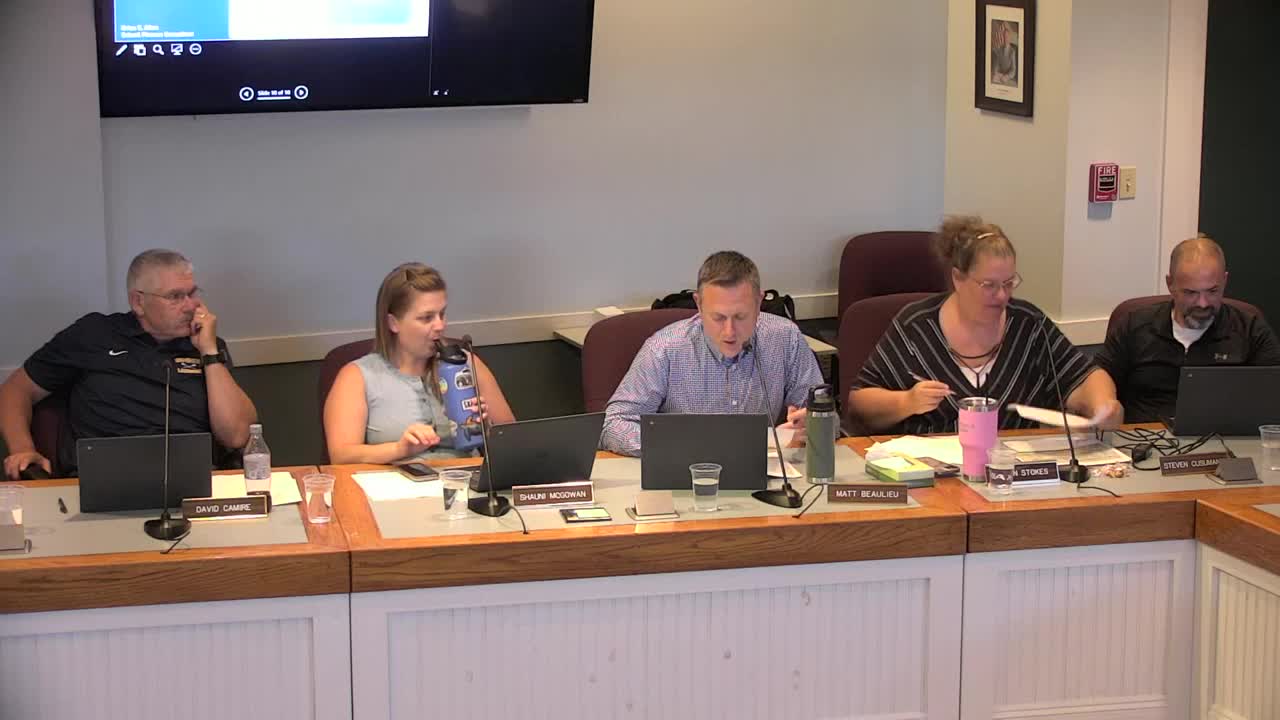Budget Transparency Debate Sparks Concerns Over Fraud Risks
July 11, 2024 | Rochester City Council, Rochester City , Strafford County, New Hampshire

This article was created by AI summarizing key points discussed. AI makes mistakes, so for full details and context, please refer to the video of the full meeting. Please report any errors so we can fix them. Report an error »

During a recent government meeting, discussions centered on the district's budgeting practices and the implementation of a zero-based budgeting approach. Officials expressed confidence in their current software capabilities for forecasting debt service levels, indicating that it can effectively determine sustainable debt levels based on budget forecasts. However, there was a call for training programs to help staff adapt to the zero-based budgeting method, which some members acknowledged could be a significant cultural shift for the district.
Transparency in budgeting was another key topic, with members highlighting the importance of clearly communicating revenue sources and expenditures. Concerns were raised about the potential risks of publicizing certain budget documents, particularly regarding the check register, which has previously led to fraudulent activities in other municipalities. The superintendent noted that the district has maintained a high level of transparency, having received the meritorious budget award for 11 consecutive years.
The conversation also touched on the participatory nature of the budgeting process, with some members questioning the extent of input from school principals. It was clarified that while principals contribute to requests for supplies and materials, they have limited influence over staffing changes. This has resulted in ongoing challenges, such as insufficient funding for library books and athletic programs.
Looking ahead, officials emphasized the need for three-year budget projections to navigate the constraints imposed by tax caps. They suggested that a zero-based budgeting approach, combined with multi-year financial planning, could help identify savings and efficiencies, ultimately mitigating the impact of tax limitations on the district's financial health.
Transparency in budgeting was another key topic, with members highlighting the importance of clearly communicating revenue sources and expenditures. Concerns were raised about the potential risks of publicizing certain budget documents, particularly regarding the check register, which has previously led to fraudulent activities in other municipalities. The superintendent noted that the district has maintained a high level of transparency, having received the meritorious budget award for 11 consecutive years.
The conversation also touched on the participatory nature of the budgeting process, with some members questioning the extent of input from school principals. It was clarified that while principals contribute to requests for supplies and materials, they have limited influence over staffing changes. This has resulted in ongoing challenges, such as insufficient funding for library books and athletic programs.
Looking ahead, officials emphasized the need for three-year budget projections to navigate the constraints imposed by tax caps. They suggested that a zero-based budgeting approach, combined with multi-year financial planning, could help identify savings and efficiencies, ultimately mitigating the impact of tax limitations on the district's financial health.
View full meeting
This article is based on a recent meeting—watch the full video and explore the complete transcript for deeper insights into the discussion.
View full meeting
